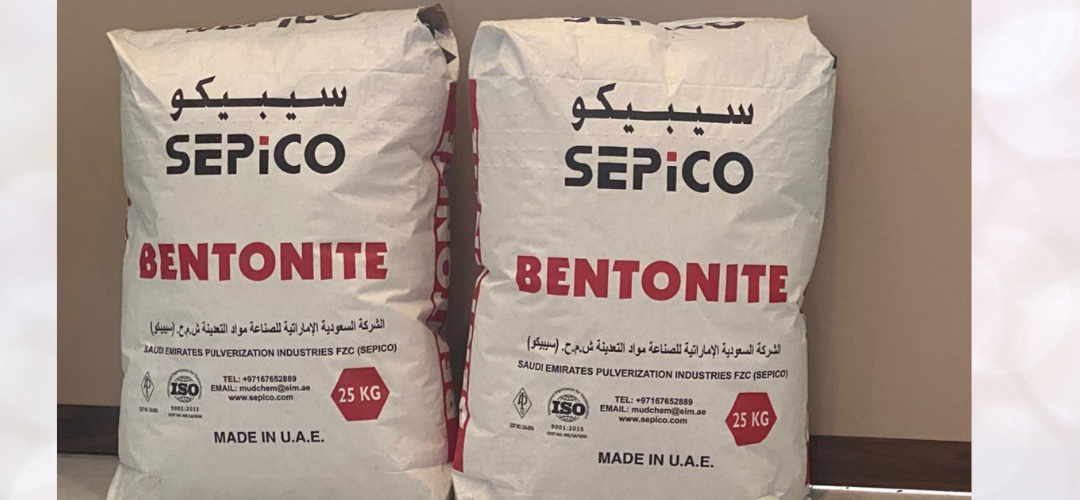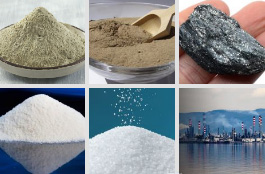Bentonite in Civil Engineering
Bentonite is a clay that’s starting to turn heads in the civil engineering and water-proofing sectors. Bentonite clay is a type of absorbent clay that is known for its ability to swell when mixed with water. It is primarily made up of montmorillonite, which gives it plasticity, and other minerals such as quartz and cristobalite. Its unique properties, such as swelling capacity, plasticity, and sealing properties, make it a valuable asset in civil engineering and waterproofing projects.
It helps in sealing gaps and voids, especially while building hydropower plants; waterproofing when building a foundation; and waterproofing screens. The quality of Bentonite significantly affects its performance in projects. High-grade Bentonite guarantees better water resistance, increased durability, and superior performance.
Applications and Uses of Bentonite in Civil Engineering
Over time, Bentonite has emerged as a trusted companion of civil engineers, providing innovative solutions to various infrastructural challenges. Its role in a wide array of applications, from tunnel waterproofing to soil stabilization, underscores its importance in modern engineering projects. Being a super absorbent and expandable clay, bentonite easily fills up voids and seals gaps when it comes into contact with water. It acts more like a sponge, making it an excellent sealant and waterproofing material. These unique features have marked it as an invaluable component throughout the construction and mechanical industries.
Water-proofing tunnels and Structures
Bentonite clay is used increasingly in constructing tunnels, especially under water or in water-rich surroundings. The unique swelling properties of the clay when wet form a natural barrier against water infiltration, providing reliable long-term performance and reducing the risk of potential water damage.
Soil Stabilization
Bentonite is also used in geotechnical applications for soil stabilization. By mixing Bentonite with soil, it improves the load-bearing capacity of the soil. This is particularly effective in sandy and loamy terrains that traditionally lack firmness and stability.
Controlling and Redirecting Waterflow
Bentonite is also utilized to construct cut-off walls, a cost-effective method to control and direct groundwater flow around constructions. Using Bentonite-enforced barriers, remedies for water availability issues can be managed more efficiently.
Read more on the Industrial Applications of bentonite here.
Applications of Bentonite in civil engineering projects
From canal lining and landfill sealing to drilling mud in boreholes, Bentonite’s uses are extensive. Its unique properties also make it ideal for soil stabilization and slurry wall construction.
Bentonite in Waterproofing Applications: The Unique Properties of Bentonite for Waterproofing
Using Bentonite for waterproofing has become a common practice due to its efficiency and versatility. It is used in both new construction and retrofit applications where additional waterproofing is required.
Creating water-resistant barriers
Bentonite is widely used in managing water in the large-scale construction of dams and reservoirs. It helps in creating a waterproof barrier in the construction of subsurface water and waste containment systems, preventing the infiltration or escape of water.
Retrofit Waterproofing
Bentonite comes to the rescue when conventional waterproofing techniques don’t work or can’t be used. Bentonite clay, which swells up and fills in gaps and fractures to create an efficient waterproof barrier, can be retrofitted into existing structures that are damp or leaking.
Compared to other waterproofing materials, bentonite proves to be a sustainable option due to its natural origin. Methane emissions from Bentonite are substantially lower compared to synthetic waterproofing materials like PVC and EPDM.
Types of Bentonite Used in Waterproofing and Their Applications
Sodium Bentonite: Characteristics and Uses
Sodium bentonite is known for its high swelling capacity, making it advantageous in waterproofing applications. It’s often used in the construction of artificial lakes and ponds.
Calcium Bentonite: Characteristics and Uses
Calcium bentonite, on the other hand, has a lower swelling capacity but retains the critical properties of bentonite. It’s primarily used in cosmetics, agriculture, and purification processes
How long does waterproofing bentonite last?
Bentonite’s lifespan is remarkable; it can maintain its waterproofing capabilities for several decades, given that it’s not exposed to extreme conditions or harsh chemicals.
Frequently Asked Questions (FAQs)
Where can I find bentonite for waterproofing in the UAE?
SEPICO is a leading producer of high-quality bentonite and holds the position of the largest exporter of bentonite in the UAE. Specializing in the exclusive manufacturing of API-grade bentonite, SEPICO achieves a 100% success rate in civil engineering projects. For inquiries regarding Bentonite, reach out today to secure the finest product from the manufacturer itself.
What is bentonite most used for in civil engineering?
In civil engineering, bentonite is most commonly used for waterproofing and as a sealant in structure joints, landfill sites, and dams.
Why is bentonite used in drilling?
Bentonite is used in drilling as it provides viscosity to the drilling fluid, enabling it to suspend and transport the drill cuttings from the drilling bit and back to the surface. It also stabilizes the wellbore and prevents fluid loss into the porous rock formation.
Is bentonite good for waterproofing?
Yes, bentonite is an excellent material for waterproofing due to its high absorbency and ability to form a dense, impermeable barrier that prevents water infiltration.

